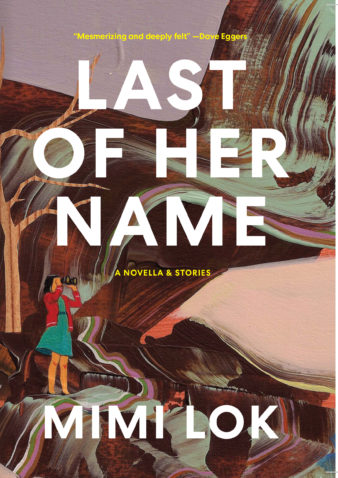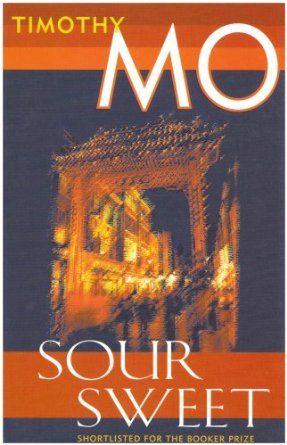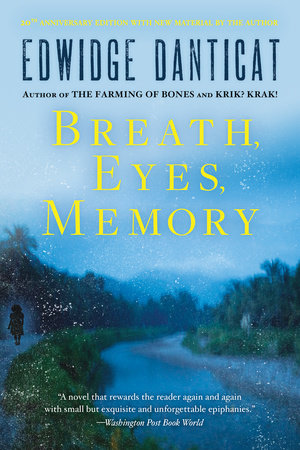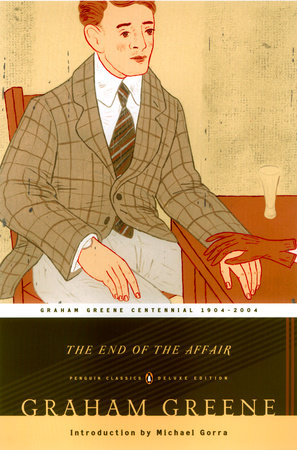Reading Lists
10 Intimate Stories About Love and Loss
Mimi Lok, author of "Last of Her Name," recommends fiction about yearning

“My favorite word is yearning because it suggests the deepest level of desire.”
–Robert Olen Butler
Yearning is at the heart of every story because it’s at the heart of every human—rooted in what we’ve loved and lost, or that which never loved us back. Whether that’s a parent, a child, a lover or a country, what fascinates me is how we’re defined not only by our desires but also by how we choose to negotiate those desires (or not).
The stories in my collection Last of Her Name are about the intimate, interconnected lives of diasporic women and the histories they are born into. Set in a wide range of time periods and locales, including ’80s UK suburbia, WWII Hong Kong and urban California, the stories feature an eclectic cast of outsiders: among them, an elderly housebreaker, wounded lovers, and kung-fu fighting teenage girls. What binds them together are deep-seated currents of love, loss, and longing across time and place.
This is a selection of devastating (and devastatingly beautiful) stories on this theme that have stayed with me long after I’ve read them. Yes, there are novels in here, but what is a novel but a story that takes a few more words to tell? Although they vary in length, from the very short (1 paragraph) to the very long (a 4-part novel), what they have in common is their intensely intimate portrayal of love and loss in a variety of forms, their depiction of the epic in the everyday, and their quiet, unshowy, enduring power.
“Dimension” in Too Much Happiness by Alice Munro
This is a story that doesn’t let its reader look away. Doree, a young mother and wife, cannot stop visiting her criminally insane husband in prison after he commits a heinous crime–the horror of which is heightened by Munro’s flat, blank description of the atrocity. This is the kind of act for which any reaction besides wrathful vengeance seems pointless, but then Munro forces us to grapple with Doree’s empathy and desperation. Unsettling, unblinking, uncompromising.
“The Kidney-Shaped Stone That Moves Every Day” from Blind Willow, Sleeping Woman by Haruki Murakami
This is one of the best stories I’ve read about the nature of obsession. Haunting, heady, and pacy–like slipping under a spell—and propelled by gnawing questions: Why won’t my lover tell me what she does for a living? Where did that kidney-shaped stone come from, and why does it keep turning up in a different spot each day? The kind of story that makes you feel increasingly, mouth-wateringly irrational the further you read.
“Goldfish on the Roof” from Palm of the Hand Stories by Yasunari Kawabata
This entire story (that fits in the palm of your hand) is like a manic fever dream. A fable-like tale of Chiyoko, the unloved daughter of a concubine haunted by her heritage and also by the visions of fish invading the mirror above her bed–apparitions of goldfish that her father raises in tanks on the roof. The story, dense, surreal, and knotted with cruelty and violence, unfolds at a breakneck pace and leaves me breathless and slightly nauseated every time.
“Lincoln” from Last Car Over the Sagamore Bridge by Peter Orner
Peter Orner is a master of depicting the negative space of heartbreak. It seems the shorter the story, the deeper the cut. I’ve read this very short story countless times, and pretty much each time I return to it I manage to forget what a punch to the gut it is until I’ve reached the end, and by then it’s already too late.
Sour Sweet by Timothy Mo
A Chinese family trying to make a life for themselves in ’60s England. The mother’s secret past, the father’s folly that puts everything at risk. The sinister, looming presence of the crime syndicate. Intimate, comic, and chilling. Also, possibly the best depiction in literature of the drudgery, cacophony, and adrenaline rush of working in a Chinese restaurant.
Breath, Eyes, Memory by Edwidge Danticat
An emotionally vivid tale of diasporic mothers and daughters, generational trauma, and female resilience. There are many excellently drawn characters and heartbreaking moments throughout, but it’s the evolution of Tante Atie—the aunt who lovingly raises narrator Sophie in her native Haiti before having to release her to her mother in New York—that left the most indelible mark on me.
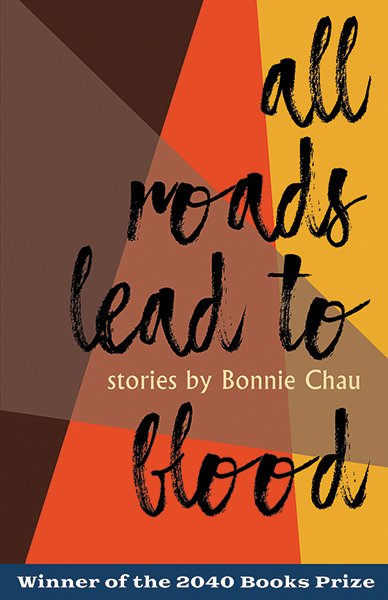
“Medusa Jellyfish” in All Roads Lead to Blood by Bonnie Chau
Steeped in a just-out-of-reach sense of place and time, this story captures a unique kind of nostalgia: how you can miss someone, in this case an ex-lover, not because you’re out of each others’ lives—they’ve since become friends living in the same city who share cigarettes and gossip—but because you know you’ll never be the same people together again.
The End of the Affair by Graham Greene
The affair is between Sarah Miles and Maurice Bendrix, until God, rather than Sarah’s husband Henry, gets in the way. A triple hankie story of jealousy, obsession, and humility.
“The Raft” from Pink Harvest: Tales of Happenstance by Toni Mirosevich
The short story as existential theater. Life and death and liberation. A reckoning with the things that matter and the things that don’t. Moving, wrenching, and utterly, gorgeously life-affirming.
The Neopolitan Quartet by Elena Ferrante
I’ve rarely mourned a fictional relationship as deeply as I’ve mourned the friendship between Elena and Lila. There’s something incredibly infuriating, compelling, tragic, anxiety-inducing, and inevitable about how the two keep circling each other, wrenched together in great intimacy and trust one moment and then repelling and hurting each other the next, entwined over decades in waves of destruction, renewal, and fragile truces.




